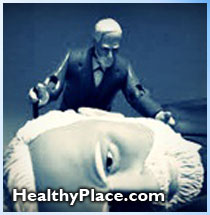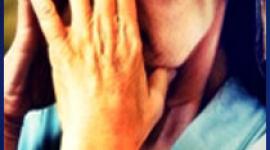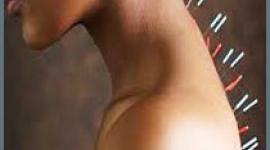Psychotherapy, Light Therapy, Dietary Supplements for Depression
Psychotherapy, light therapy, supplements and aerobic exercise work for treating mild to moderate depression.
Anti-depressants are now taken by tens of millions of Americans, and many people credit them with changing, or even saving, their lives. But they're not for everyone.
The most-prescribed medications, SSRIs (selective serotonin reuptake inhibitors) such as Paxil, Prozac and , have a host of potential side effects, including loss of libido, insomnia, restlessness, weight gain, headaches and anxiety. Little is known about the effects of long-term use. Furthermore, the drugs can be prohibitively expensive for people without health insurance. The lowest dosage of Paxil, for instance, costs about $70 for a 30-day supply.
For some people, the drugs simply don't work. Last year, 111 million prescriptions were written for them, a 14 percent increase from 2000, according to IMS Health, a market research firm. But a 2000 New England Journal of Medicine study found that the medications fail to help one-third of people suffering from mild to moderate depression and half of those suffering from chronic depression.
"The benefits of prescription drugs aren't as great as we all believed," says Dr. Daniel F. Kripke, a psychiatrist at the University of California, San Diego, who studies depression treatments.
Researchers still don't understand why the medications, which boost the production of the brain chemical serotonin, aren't effective for everyone.
But they have begun to study alternatives. Among the most promising are psychotherapy, light therapy, supplements and good old-fashioned erobic exercise. Acupuncture, >yoga, massage and relaxation techniques may also offer temporary relief, as can dietary changes, such as avoiding caffeine or loading up on fish rich in omega-3 fatty acids, which purportedly spike serotonin levels. Serotonin is a brain chemical that regulates mood.
Paul Cumming, a 46-year-old San Diego man, tried light therapy to ease his depression in 1998. "In less than a week, I felt like a major cloud had been lifted," he says.
Of course, people suffering from severe depression shouldn't experiment on their own with these techniques, caution experts. But used under the supervision of a trained professional, they can provide an alternative to medication. For people with milder symptoms, these antidotes might be all they need to banish the blues.
THE TALKING CURE
 Traditional talk therapy fell out of favor in recent years because drug therapy was considered to be easier, cheaper and less time-consuming. But a form of psychotherapy, cognitive behavorial therapy could bring face-to-face treatment back into the limelight. In this form of therapy, patients learn coping strategies to counteract the obsessive thoughts of failure, inadequacy and pervasive gloom that typify depression.
Traditional talk therapy fell out of favor in recent years because drug therapy was considered to be easier, cheaper and less time-consuming. But a form of psychotherapy, cognitive behavorial therapy could bring face-to-face treatment back into the limelight. In this form of therapy, patients learn coping strategies to counteract the obsessive thoughts of failure, inadequacy and pervasive gloom that typify depression.
"Psychotherapy has really been undersold as a treatment for depression," says Robert J. DeRubeis, chairman of the psychology department at the University of Pennsylvania in Philadelphia. "But cognitive therapy works just as well as medication, even in severely depressed people."
In a 2002 study conducted at Vanderbilt University in Nashville and the University of Pennsylvania, the most common drugs were compared with cognitive behavioral therapy in 240 patients suffering from moderate to severe depression. Although the medication group got better more quickly, after about four months, 57 percent of patients in each group had improved.
Those who showed improvement were then followed for an additional year. During the follow-up period, cognitive therapy patients fared much better: Three-quarters of them remained symptom-free, compared with 60 percent of patients on medication, and 19 percent on a placebo.
"People treated with cogitive behavioral therapy get well and are more likely to stay well because they've learned skills to deal with their depression," says DeRubeis, one of the study co-authors. "And for someone who is prone to multiple episodes of depression, this is a good alternative to SSRIs (drugs)."
Traditional therapy, in which patients rummage through the debris of their childhoods to pinpoint the source of self-destructive behaviors, doesn't appear to work as well in banishing the blues, researchers say.
LIGHT AGAINST DARKNESS
For years, light therapy has been used to treat seasonal affective disorder, a type of depression that afflicts about one in 10 people who live in places with short winter days and extended darkness. Now, growing evidence indicates that being bathed at least 30 minutes a day in bright artificial light may be as effective as an anti-depressant at any time of the year.
The therapy approximates the brightness of sunlight using a specially designed light box that emits 5,000 to 10,000 lux, which is a measure of the amount of light received in the eye. The brightness is equivalent to the intensity of sunlight about 40 minutes after sunrise.
The mood-boosting effects can kick in almost immediately, researchers say. In comparison, anti-depressants may require a month of use before their effects are felt.
Cumming, who tried the therapy as a last resort after nearly a year of severe depression, was surprised by the results -- as was his doctor. His depression had proved resistant to conventional medication.
He now periodically sits in front of a light box when he feels himself backsliding into depression.
Scientists speculate that when people's body clocks, or circadian rhythms, get out of sync, they produce too much of the hormone melotonin, creating a biochemical imbalance in the brain region that regulates mood, energy and sleep.
"Somehow, the bright light shifts the body clock," says Kripke, who has researched light therapy for more than two decades.
In a 2002 study of 16 pregnant women with major depression, an hour's exposure to a 10,000-lux light box improved their symptoms by 49 percent after three weeks, a response rate comparable to antidepressants. Scientists are gearing up for a larger, five-year test of this therapy on pregnant women.
"This is important because the use of antidepressant medication by pregnant women is not risk-free, and there is possible harm to the unborn fetus," says Michael Terman, a study co-author and psychiatry professor at Columbia University in New York. "For depression during pregnancy, if we can nip it in the bud, we may also be able to prevent postpartum depression and its often horrific effects."
SUPPLEMENTAL REMEDIES
Perhaps the most popular alternative remedy for depression is St. John's wort. Although two recent studies found it didn't work as well as a placebo in alleviating major depression, the herb has shown promise in treating mild depression.
Side effects include nausea, heartburn, insomnia and an increased sensitivity to sunlight. It also can weaken the effect of prescription medications, such as the blood thinner warfarin, the heart medication digitalis, some AIDS drugs and oral contraceptives.
Still, "people should consider it as an option, especially if they haven't done well on other medications," says Dr. David Mischoulon, a psychiatrist at Harvard Medical School.
Another dietary supplement, SAM-e, may also help combat depression. Produced from a yeast derivative, SAM-e was introduced to the United States in 1999. Backed by 40 studies done in Europe, the over-the-counter remedy was touted as a fast-acting antidote to depression with none of conventional medication's side effects. Some depression sufferers find SAM-e (short for s-adenosylmethiodine, a substance found naturally in the body that is believed to fuel dozens of biochemical reactions) more tolerable than the usual SSRI drugs.
Timothy Dickey, a 33-year-old Los Angeles writer, took Prozac for more than a year but didn't like the numbing effect had on his emotions, or the dry mouth and mild anxiety it caused. With SAM-e, he says, his depression vanished within days.
"I feel more resilient and fortified against the daily stresses of life that in the past would have gotten me down," says Dickey, who takes a 20-milligram tablet each day.
Growing anecdotal reports about the efficacy of SAM-e, which seems to work by enhancing the action of two mood-regulating brain chemicals-serotonin and dopamine, have prompted mainstream doctors to take a look. Harvard researchers are now testing the supplement in combination with SSRIs, such as Prozac and Zoloft, on severely depressed patients whose symptoms aren't eased by conventional drugs.
SAM-e, however, may trigger episodes of mania in people with bipolar disorder. It's also difficult to know if you're getting a therapeutic dose of SAM-e in supplements sold in health food stores.
"A few brands are OK," says Dr. Richard P. Brown, a Columbia University psychiatrist who has used SAM-e successfully on several severely depressed patients who didn't respond to antidepressants. "But a lot of them are mediocre or worthless. That's why people should consult with their doctors before they use them."
ACUPUNCTURE
Acupuncture may be an effective mood enhancer. In a 1999 study conducted by University of Arizona researchers, 34 women suffering from major depression who underwent eight weeks of acupuncture treatment reported an elevation in mood similar to that provided by antidepressants. The finding reinforced earlier studies in the former Soviet Union and China. The Arizona researchers, along with scientists at Stanford University, are conducting a larger study of 150 women.
"While the initial results were encouraging," says Rachel Manber, a Stanford University psychologist and research team member, "they aren't conclusive. . . . But this might be a viable option for women who are pregnant or lactating and don't want to take medication."
RX: EXERCISE
Numerous studies have shown exercise to be an excellent antidote for mild to moderate depression. And over the long haul, researchers say, it may work better than medication in controlling symptoms.
"We still don't understand the mechanisms behind this -- whether it's a change in brain chemistry or they just feel better because they mastered something challenging," says James Blumenthal, a Duke University psychologist and co-author of a 2000 study on the long-term effects of exercise.
"But we do know it works."
Duke researchers studied the effects of exercise on 156 volunteers older than age 50 who were diagnosed with a major depressive disorder. The test subjects were given a regimen of exercise, medication or a combination of both.
After 16 weeks, all three groups' progress against depression was similar, although those who took anti-depressants got faster relief from their symptoms. But a follow-up study 10 months later found exercise groups had a significantly lower relapse rate than those on medication only. And the more participants exercised, the better they felt.
That's certainly what happened to Gary Watkins. Every winter, the 56-year-old Durham, N.C., man would lapse into an ever-deepening funk as the days got shorter. He tried medication, but it stunted his emotions so he stopped taking it. Yet he knew he had to do something.
Enrolling in the Duke University study got him started on a regular exercise regimen that he continues.
"It's hard to get yourself moving when you're depressed,' says Watkins, who still works out on the treadmill on his lunch hour and runs cross-country. "But for me, exercise is the best way to control my depression."
Source: Los Angeles Times
next: Acupuncture For Treating Depression
~ depression library articles
~ all articles on depression
APA Reference
Gluck, S.
(2008, December 2). Psychotherapy, Light Therapy, Dietary Supplements for Depression, HealthyPlace. Retrieved
on 2026, March 3 from https://www.healthyplace.com/depression/articles/psychotherapy-light-therapy-dietary-supplements-for-depression



